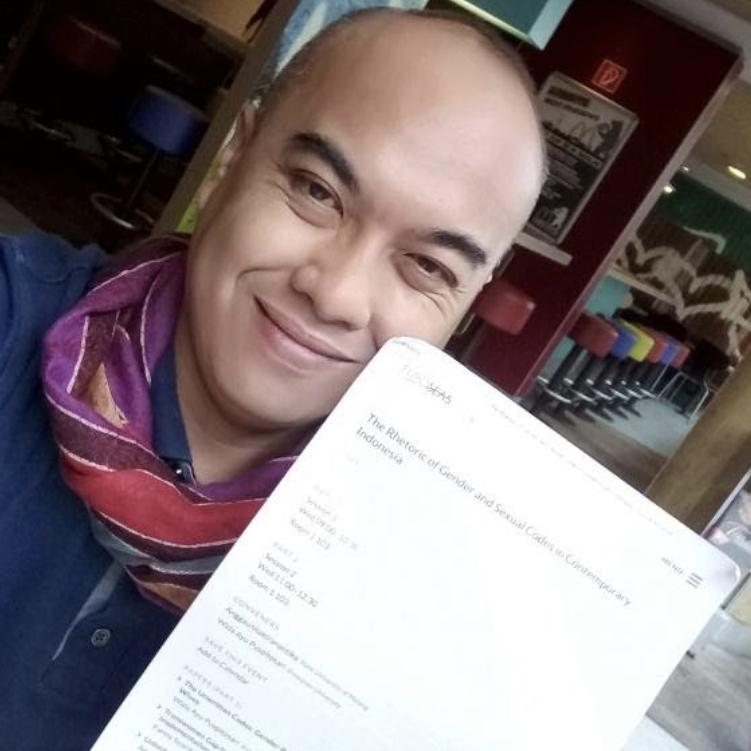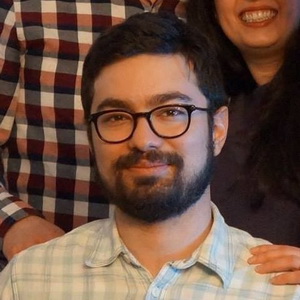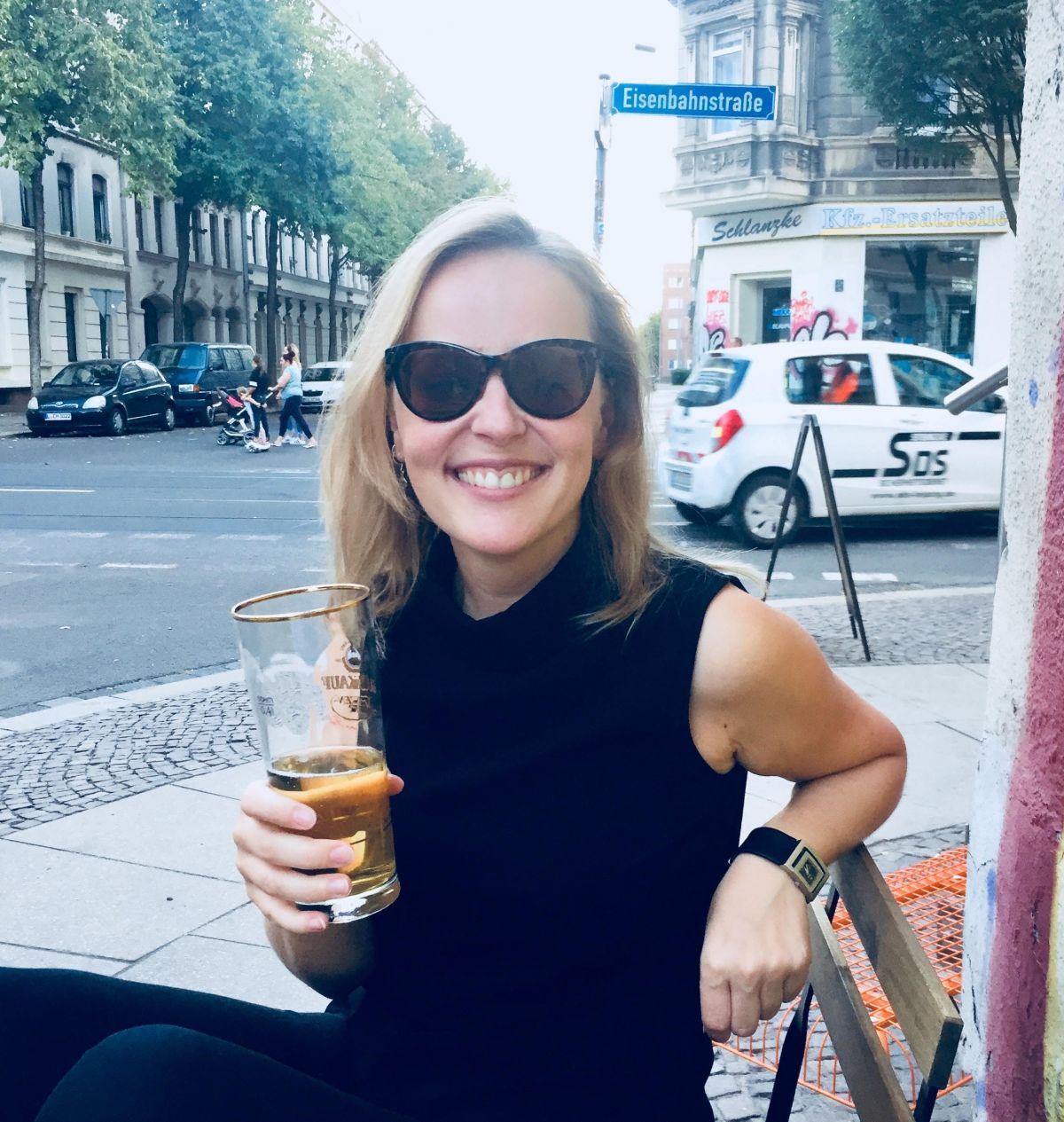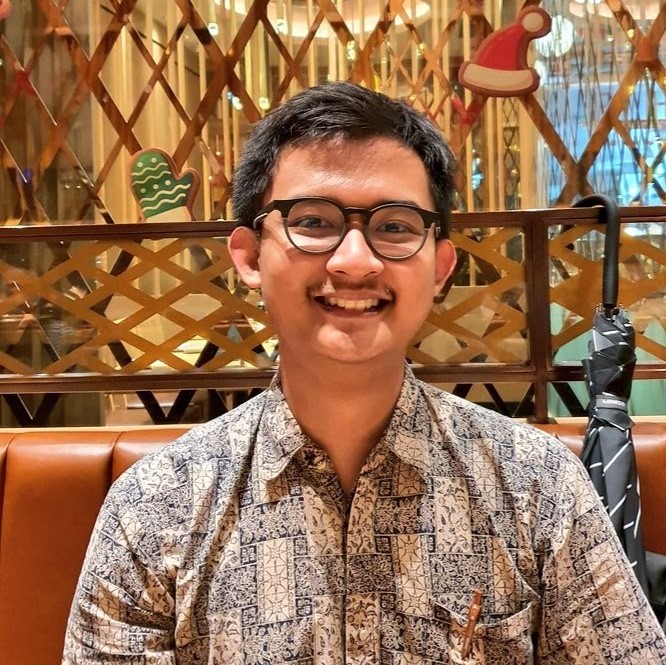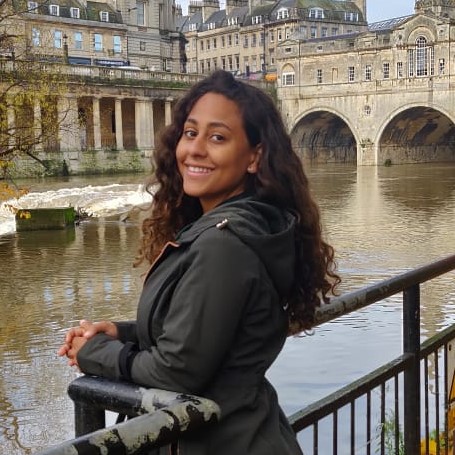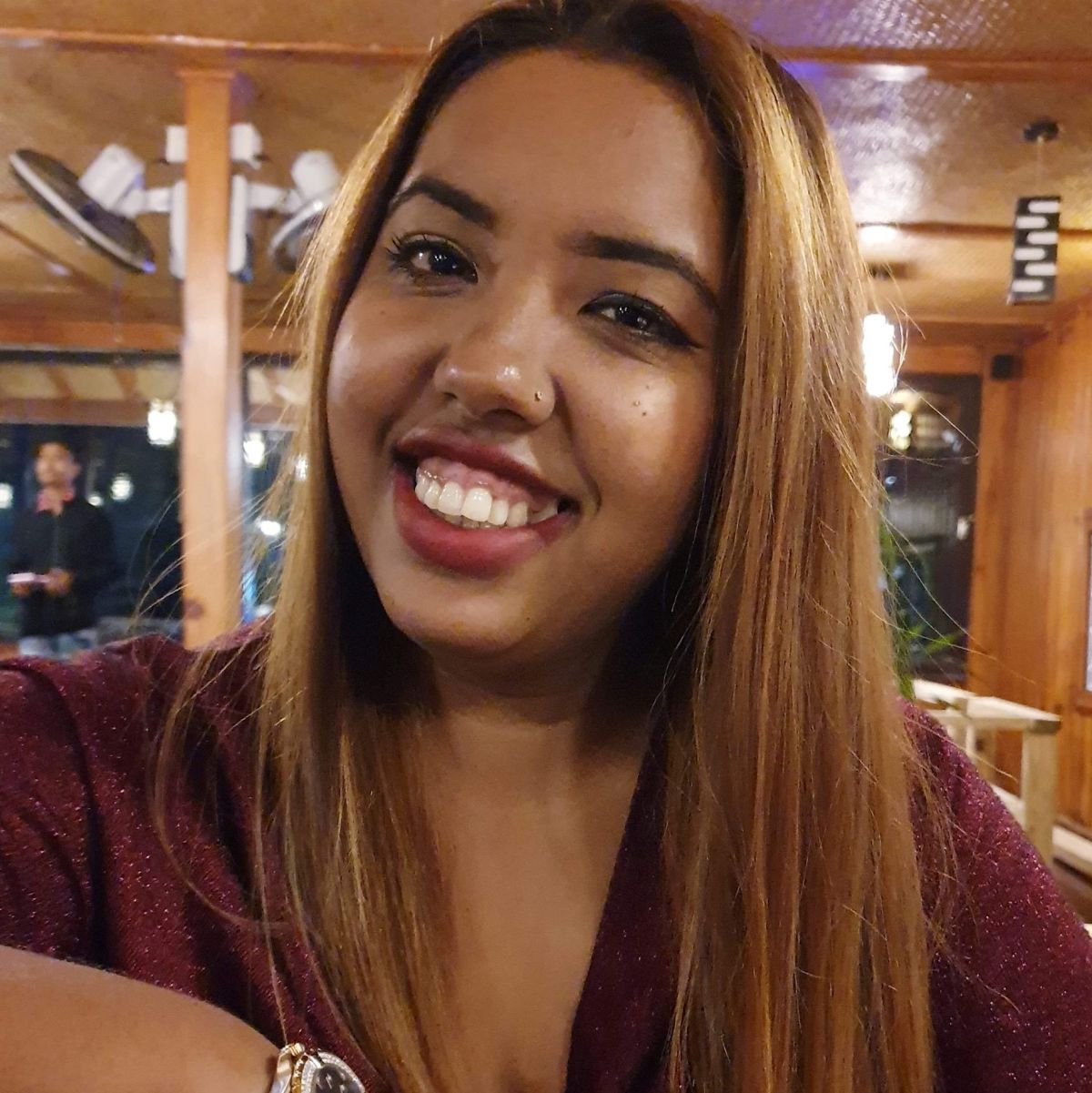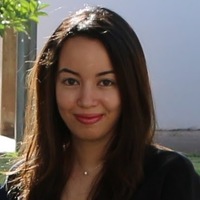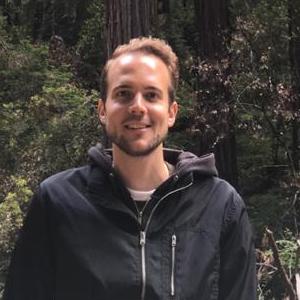Discutere i diritti religiosi delle minoranze di genere in Indonesia
Mi chiedo come mai la maggior parte degli indonesiani sia convinta dell’ateismo della comunità LGBT, e pensino che non mettano correttamente in pratica gli insegnamenti dei libri sacri.
Indonesia, Southeastern Asia
Story by Fanny Syariful Alam. Translated by Giovanna Luisetto
Published on June 17, 2023.
This story is also available in 
Sono sempre interessato a parlare di religione con i miei amici della comunità LGBT indonesiana, specialmente da quando la maggior parte degli indonesiani li crede peccatori senza nessun tipo di credo religioso. Al contrario, molti indonesiani LGBT sono religiosi, pregano o esprimono sé stessi attraverso fedi o credenze. La costituzione indonesiana, UUD 1945, garantisce il diritto di praticare la religione con l’Art. 28E, verso (1), che afferma: “Chiunque è libero di scegliere la propria religione e di pregare, di scegliere la propria istruzione e metodo di insegnamento, la propria nazionalità, di decidere di vivere nel proprio paese e di lasciarlo, così come ha il diritto di tornare.”
Pancasila, la filosofia dello stato indonesiano, si basa su cinque principi: il nazionalismo, internazionalismo o umanesimo, consenso o democrazia, prosperità sociale, e la fede in un solo Dio. Si suppone che gli indonesiani e i loro apparati di governo siano umanistici, e che la maggior parte delle religioni abbiano come valore il rispetto delle persone, compresi i diritti di processare la propria fede.
Suona ideale? Credo di sì. Comunque, dal punto di vista della comunità LGBT, mi sento di mettere in discussione l’attuazione di questo articolo a causa degli indonesiani e dei governi. Credo che la maggioranza degli indonesiani di tutte le religioni consideri peccaminose le persone LGBT. Non posso dimenticare che la polizia municipale arrestò 18 coppie gay nella città di Padang, nella Sumatra occidentale. Queste furono obbligate a partecipare ad un programma di recupero psicologico dall’Agenzia dei Servizi sociali, un esorcismo religioso chiamato “Rukya” per la loro “guarigione.”
Credo che la maggioranza degli indonesiani di tutte le religioni consideri peccaminosi gli LGBT.
Per quanto riguarda il governo, il nostro ex ministro degli affari religiosi, Lukman Hakim Saifuddin, chiese agli indonesiani empatia nei confronti delle persone LGBT, continuando allo stesso tempo a supportare la denuncia della stessa comunità. Enfatizzò anche il dovere dei leader religiosi di guidarli per cambiare in “meglio”.
In realtà, vedo quanto è piena di colori la maggior parte dei miei amici LGBT nel seguire la propria religione e credenza. Raccontano le loro toccanti storie, che mi ricordano la loro umanità a differenza di una visione bigotta che tanta gente ha nei loro confronti. Ho intervistato alcuni di loro, e voglio mostrarvi i loro punti di vista. La mia amica Ayu Chantika, una ragazza trans, disse, “Da musulmano, quando prego, come un uomo indosso ancora ‘Peci’ e sarong.”
Mi chiedo come mai la maggior parte degli indonesiani sia convinta dell’ateismo della comunità LGBT.
Nel frattempo, il mio amico transessuale Retsu, sottolinea l’importanza della religione nella sua vita: “Nel 2014 ho studiato l’Islamismo ampiamente. In quel tempo, dovevo tenere nascosta la mia identità sessuale.” Riri Wirayadi, ragazza trans, parla della sua fede in Dio: “Attualmente mi sento abbastanza atea nonostante la mia fede in Dio. Solitamente trascorrevo parecchio tempo in chiesa, ma le religioni continuano a discriminare chi appartiene a minoranze di genere”.
Le storie dei miei amici rivelano che loro, come altri indonesiani, vorrebbero esercitare i propri diritti religiosi. Quindi, mi chiedo come mai la maggior parte degli indonesiani sia convinta dell’ateismo della comunità LGBT, e persino che non mettano correttamente in pratica gli insegnamenti indicati nei libri sacri.
Gli indonesiani hanno dimenticato che nella Costituzione lo Stato si è impegnato nel principio di uguaglianza? Uno dei principi di Pancasila, ‘Umanità giusta e civilizzata’, indica che lo stato è responsabile dell’attuazione della costituzione basata sull’umanità. Con i principi delle Costituzioni e di Pancasila, c’è ancora bisogno di lottare per i diritti religiosi della comunità LGBT?
How does this story make you feel?
Follow-up
Do you have any questions after reading this story? Do you want to follow-up on what you've just read? Get in touch with our team to learn more! Send an email to [email protected].
Talk about this Story
Please enable cookies to view the comments powered by Disqus.
Subscribe to our Monthly Newsletter
Stay up to date with new stories on Correspondents of the World by subscribing to our monthly newsletter:
Other Stories in Italiano
Explore other Topics
Get involved
At Correspondents of the World, we want to contribute to a better understanding of one another in a world that seems to get smaller by the day - but somehow neglects to bring people closer together as well. We think that one of the most frequent reasons for misunderstanding and unnecessarily heated debates is that we don't really understand how each of us is affected differently by global issues.
Our aim is to change that with every personal story we share.
Community Worldwide
Correspondents of the World is not just this website, but also a great community of people from all over the world. While face-to-face meetings are difficult at the moment, our Facebook Community Group is THE place to be to meet other people invested in Correspondents of the World. We are currently running a series of online-tea talks to get to know each other better.











